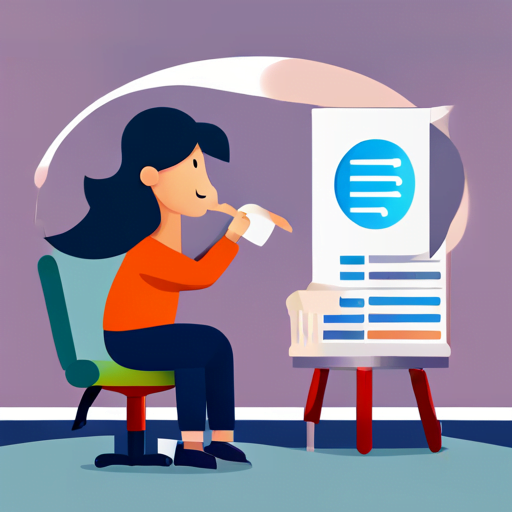Are you struggling to understand English texts? Do you feel like your reading skills are holding you back from achieving your academic or professional goals? Fear not, because improving your English reading skills is an achievable goal that can be accomplished with consistent practice and the right strategies.
In this article, we will provide you with practical tips on how to enhance your comprehension, vocabulary, speed, and note-taking abilities. You will also learn how to use context clues effectively and engage in discussions about what you read.
By following these steps and staying motivated, you can take your English reading skills to the next level and become a confident reader.
Table of Contents
Assess Your Current Level

Assessing your current level in the realm of literary comprehension is imperative for those seeking to enhance their English reading skills. Before you can improve, you need to know where you stand.
Start by discussing your strengths and weaknesses with a tutor or mentor who can give you constructive feedback on your reading abilities.
Once you have a clear understanding of your current level, it’s time to set goals and benchmarks for improvement. This could include reading a certain number of books per month, practicing specific reading strategies like skimming or scanning, or working on vocabulary acquisition.
By setting achievable goals and tracking your progress along the way, you’ll be able to see tangible improvements in your English reading skills over time. Remember to stay focused and motivated – with dedication and effort, anyone can become a skilled reader!
Build Your Vocabulary

You’ll boost your word knowledge and feel more confident tackling texts if you expand your vocab! One way to do this is by playing word games. Scrabble, Boggle, and Bananagrams are all great options for challenging yourself to learn new words while having fun. You can also try online games like Wordle or crossword puzzles to keep things interesting.
Another effective method for building vocabulary is using flashcards. You can create your own with index cards or use apps like Quizlet to make digital flashcards. Include both the definition and an example sentence for each new word you learn. This will help reinforce your understanding of the word in context and make it easier to remember when encountering it in a text.
Spend just a few minutes each day reviewing your flashcards, and you’ll be surprised at how quickly your vocabulary grows!
Practice Reading Regularly

If you want to truly excel and become a skilled reader, it’s essential that you make reading a regular part of your routine. Reading regularly helps improve your comprehension skills, expands your vocabulary, and enhances your critical thinking abilities.
To get started, set aside some time each day to read something that interests you. It could be anything from a novel or magazine article to a blog post or news story.
To make the most out of your reading practice, try using different reading strategies such as skimming and scanning. Skimming involves quickly going through the text to get an overall idea of what it’s about while scanning is looking for specific information in the text.
Additionally, choose reading materials that are appropriate for your level and interests. If you’re just starting out, start with simpler texts before moving on to more complex ones.
Remember that practice makes perfect so keep at it and soon enough you’ll see improvements in your English reading skills!
Use Context Clues

Using context clues can greatly enhance your understanding of written material and take you closer to becoming a fluent reader. When you come across unfamiliar words, try using dictionaries or online tools to find their meaning. This will help you understand the content better and improve your vocabulary at the same time.
Another way to use context clues is by identifying tone and mood in the text. This means examining how the author is expressing themselves – are they being serious, humorous, sarcastic? Understanding tone and mood can help you grasp the author’s intentions and make connections within the text. Additionally, finding synonyms for difficult words can also aid in comprehension.
Overall, taking advantage of context clues is an effective way to improve your reading skills and become a more confident reader.
Improve Your Reading Speed

You can read faster than you think, and it’ll blow your mind how much more you can absorb from written material. To improve your English reading skills, it’s important to develop reading strategies that enhance both speed and comprehension.
Speed reading techniques involve training your eyes to move quickly across the page while still retaining information. One of the most effective speed reading techniques is called skimming. Skimming involves quickly scanning a text for main ideas and key points, without getting bogged down in details.
Another technique is called scanning, which involves looking for specific information within a text by rapidly moving your eyes over the page until you find what you’re looking for. By practicing these techniques regularly, you’ll be able to read through material more efficiently and effectively, improving both your speed and your ability to comprehend what you’ve read.
Analyze the Text

When analyzing a text, you need to identify the main idea and supporting details. This will help you understand what the author is trying to convey.
Additionally, recognizing the author’s purpose can also give you insight into their message. By paying attention to these key points, you’ll be able to delve deeper into the text and gain a better understanding of its meaning.
Identify the Main Idea and Supporting Details
Identifying the main idea and supporting details is crucial for effective comprehension in reading. This skill can be honed through effective note-taking and active reading strategies.
When you start a new text, take a few minutes to preview it by scanning the headings and subheadings, looking at any visual aids such as charts or graphs, and skimming the first paragraph of each section. This will give you an overview of what the text is about and help you identify its main idea.
As you read, make sure to actively engage with the text by highlighting key points or jotting down notes in the margins. You can also try summarizing each section in your own words as you go along to ensure that you’re understanding the material fully.
Remember that supporting details are important too – they provide evidence for the main idea and help deepen your understanding of it. Look out for examples, statistics, or quotes that support or illustrate the main point.
By identifying the main idea and supporting details while reading, you’ll not only improve your comprehension skills but also develop a deeper understanding of complex texts. So next time you pick up a book or article, remember to preview it first and actively engage with it as you read!
Recognize the Author’s Purpose
The author’s purpose in writing is like a hidden puzzle waiting to be uncovered, and recognizing it can help you gain a deeper understanding of the text. You may wonder why an author wrote what they wrote or what message they want to convey.
One way to uncover the author’s purpose is by identifying the tone of the text. Is it informative, persuasive, or entertaining? The tone can give you clues about the author’s perspective and intention.
Another important factor in recognizing the author’s purpose is identifying bias. Bias refers to an unfair preference towards one side over another. Authors often have their own biases that influence their writing.
By recognizing these biases, you can better understand where the author is coming from and why they wrote what they did. Keep in mind that not all biases are negative; some authors may have positive biases towards certain topics or ideas.
Recognizing bias can help you read critically and make informed judgments about the text.
Take Notes While Reading

To enhance your understanding of written English, it’s advisable to take notes while reading. Note-taking techniques and active reading strategies can help you retain information better and improve your comprehension skills. When you come across a new word or concept, jot it down in your notebook along with its definition or explanation. This will not only help you remember the meaning but also enable you to use the word correctly in the future.
Another effective note-taking technique is summarizing each paragraph in a few sentences. This will help you identify the main idea of the text and understand how different ideas are connected.
Additionally, highlighting important phrases or sentences can make it easier for you to review key points later on. By actively engaging with the text through note-taking, you’ll be able to read more critically and thoughtfully, which will ultimately lead to improved English reading skills.
Discuss What You Read

If you want to improve your English reading skills, one effective way is to join a book club or discussion group.
This will provide you with the opportunity to interact with others and practice summarizing and analyzing texts together. By engaging in these activities, you can enhance your comprehension and critical thinking abilities while also enjoying the social aspect of reading.
So why not try joining a group today and see how it can benefit your English reading skills?
Join a Book Club or Discussion Group
Joining a book club or discussion group can be a fun and effective way to boost your understanding of written English. By participating in these groups, you’ll have the opportunity to engage in conversations with other members about books that interest you. This will allow you to practice your reading skills while also expanding your vocabulary and comprehension.
Book clubs can also provide valuable resources such as book recommendations and meeting schedules. These resources can help guide you towards books that are well-suited for your level of English proficiency, making it easier for you to follow along with the discussions.
Additionally, attending regular meetings will help you stay motivated and on track with your reading goals. So why not give it a try? Joining a book club or discussion group may just be exactly what you need to take your English reading skills to the next level!
Practice Summarizing and Analyzing Texts with Others
Practice summarizing and analyzing texts with others can be a great way to enhance your understanding of written English while also building your confidence in discussing literature. Group analysis and collaborative interpretation are powerful tools that can help you achieve this goal.
By working with others, you get the chance to share ideas, ask questions, and explore different perspectives.
When practicing group analysis and collaborative interpretation, it’s important to establish clear communication channels. Make sure everyone has a chance to speak up and contribute their thoughts. Encourage constructive criticism and respectful disagreement as these can lead to deeper discussions.
Additionally, try to focus on the main ideas of the text rather than getting bogged down by details. This will help you see the big picture and develop a better understanding of how everything fits together.
With practice, you’ll soon find yourself reading more efficiently while also gaining valuable insights from the perspectives of others.
Seek Feedback and Guidance

Get better at reading by seeking out feedback and guidance from others who can help you. One way to do this is to get mentorship from someone who’s skilled in the English language. This could be a teacher, tutor, or even a friend who’s fluent in English.
Having someone guide you through your reading practice can provide valuable insight into how to improve your skills. They can point out areas where you may need more work and suggest strategies for improvement.
Another way to seek feedback and guidance is to participate actively in discussions about what you’re reading. Joining a book club or study group can be beneficial because it allows you to bounce ideas off of others and get their perspective on the text.
Additionally, participating in online forums or discussion groups related to the material can expose you to different viewpoints and increase your understanding of the text. By seeking out feedback and guidance, you can improve your reading skills and become a more confident reader of English texts.
Stay Motivated and Persistent

You gotta stay motivated and persistent if you wanna be a confident reader of English texts. It’s not gonna happen overnight, but with dedication and hard work, you can achieve your goals.
One way to stay motivated is by setting achievable goals for yourself. Start small, maybe read one article a day and gradually increase the difficulty level as you progress.
Another way to stay motivated is by reminding yourself why you started in the first place. Maybe it’s to improve your job prospects or to study abroad. Whatever your reason may be, keep it in mind whenever you feel discouraged.
Surround yourself with positive influences such as friends who support your goals or join an online community that shares similar interests. Remember, staying motivated takes effort but the end result will be worth it!
Frequently Asked Questions
What are some common mistakes that people make when trying to improve their English reading skills?
When it comes to improving your English reading skills, there are some common mistakes that people tend to make. One of these is not taking the time to identify and address their weaknesses.
Effective reading techniques involve recognizing where you struggle and then practicing accordingly. Another mistake is trying to read too quickly without fully comprehending what you’re reading.
In order to improve your skills, take the time to slow down and really engage with the text. Finally, relying solely on passive learning methods such as watching TV shows or movies in English won’t necessarily improve your reading abilities.
Active engagement with written material is key for improvement. By avoiding these common reading mistakes and focusing on effective techniques, you can take strides toward becoming a more confident reader in English.
How can I find reading material that is appropriate for my level?
To find reading material that’s appropriate for your level, you need to start by assessing your reading level. You can do this by taking an online test or working with a tutor who specializes in language learning.
Once you’ve determined your reading level, you can begin searching for reading material sources that are tailored to your needs. Some great options include graded readers, which are books specifically designed for language learners at different levels, and online resources such as news articles and blogs.
It’s important to choose materials that challenge you without overwhelming you, so don’t hesitate to ask for recommendations from teachers or other English learners. With the right resources, you can improve your English reading skills and become more confident in your abilities!
Are there any specific strategies for understanding idioms and other figurative language in English texts?
To achieve mastery of idioms and understand cultural nuances in English texts, it’s crucial to practice contextual reading.
Read materials written by native speakers or those with advanced English proficiency. Try to identify the context of the idioms and figurative language used and see how they relate to the message being conveyed.
Additionally, use online resources to search for the meaning behind unfamiliar idioms and phrases.
Finally, immerse yourself in English-speaking environments where you can engage with native speakers and observe their use of language in different contexts.
With consistent effort and practice, you’ll be able to master idiomatic expressions in no time!
How can I improve my comprehension of longer, more complex texts?
To improve your comprehension of longer, more complex texts, it’s important to use effective techniques that will help you retain information.
One way to do this is to read actively by highlighting key points and taking notes as you go along. Additionally, consider breaking down the text into smaller sections and setting a pace for yourself in order to increase your reading speed without sacrificing understanding.
It can also be helpful to practice summarizing each section or chapter in your own words to solidify your understanding. By implementing these techniques, you’ll be able to tackle even the most challenging texts with confidence and ease.
Are there any tips for maintaining my motivation to read in English over a long period of time?
Sticking to your reading goals can be tough, especially when faced with reading challenges like long texts or difficult vocabulary.
One way to maintain motivation is by finding an accountability partner. This person can check in with you regularly and provide encouragement and support as you work towards your goals.
Additionally, try setting specific targets for yourself, such as a certain number of pages or chapters per day. Celebrate your progress along the way and don’t be too hard on yourself if you miss a day or two.
Remember that developing strong English reading skills takes time and dedication, but the rewards are worth it!
Conclusion
Congratulations! You’ve made it to the end of this article on how to improve your English reading skills.
By following the outlined steps, you can become a more confident and proficient reader in no time.
Remember, the first step is assessing your current level and building your vocabulary. From there, practice reading regularly and use context clues to help you understand unfamiliar words or phrases.
Improving your reading speed, taking notes while reading, discussing what you read with others, seeking feedback and guidance, staying motivated and persistent are all essential tips that will help you excel in your English language journey.
So take these tips into account and start improving your English reading skills today. With dedication and effort, you can achieve great results!
